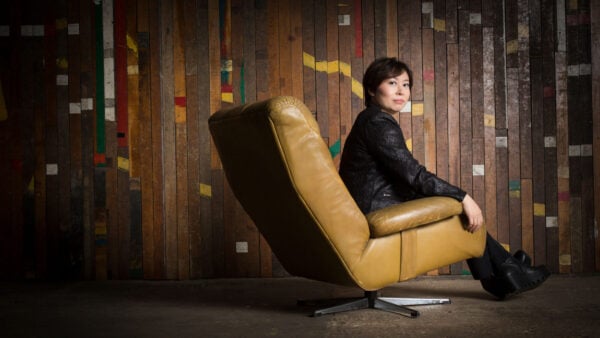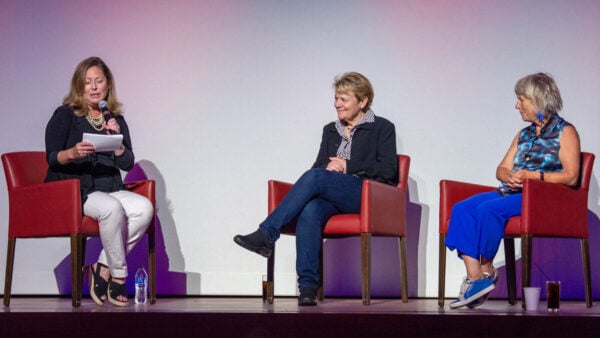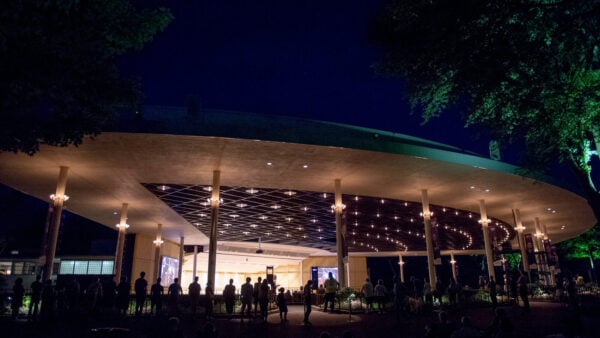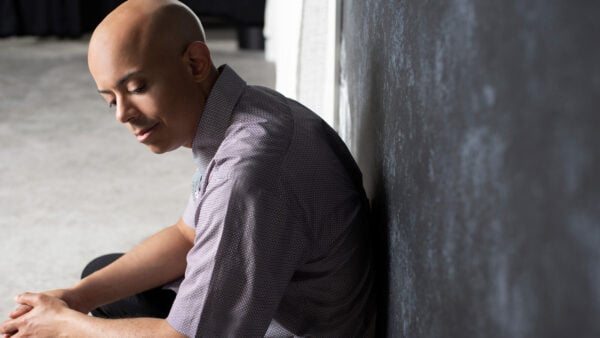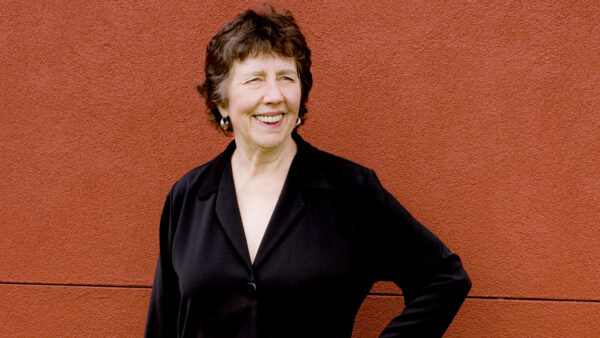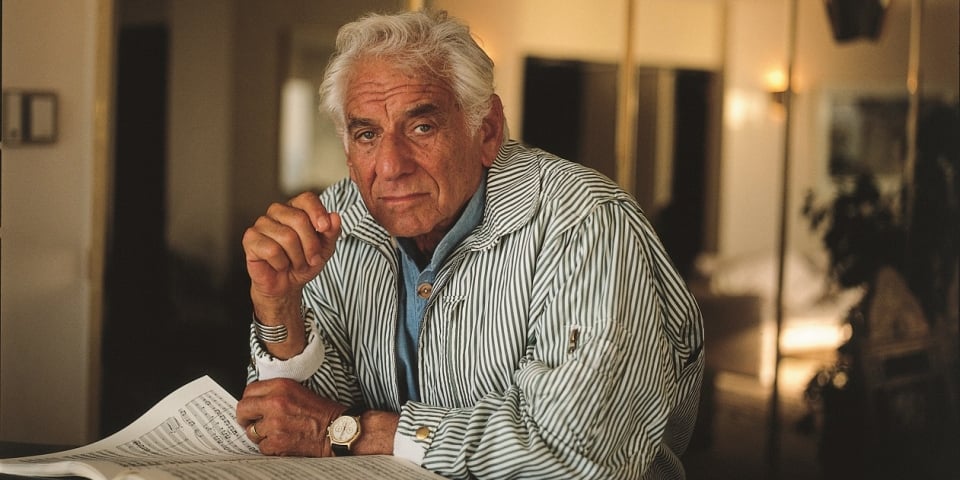
Composer and conductor Leonard Bernstein (Photo: The Leonard Bernstein Office)
On May 9, 2017, The Leonard Bernstein Office announced “Leonard Bernstein at 100,” a two-year global celebration of Bernstein’s life and career. Following up on that announcement, the Ravinia Festival has announced its plans for a two-season Bernstein centennial celebration during the summers of 2018 and 2019.
Conductor Marin Alsop, a Bernstein protégé, will be the musical curator for the events. Recently, Alsop spoke with WFMT about how she’s inspired young women to become conductors, why there aren’t more women on the podiums, and more. Read the interview here.
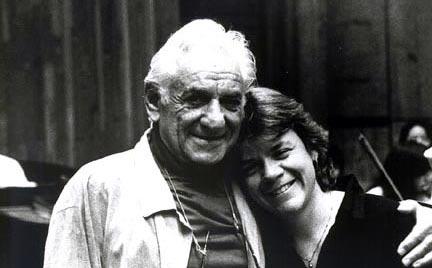
Marin Alsop with her mentor, Leonard Bernstein (Photo: Walter Scott)
In July 2018, Alsop will conduct the Ravinia premiere of Bernstein’s Mass. She’ll also be leading his Chichester Psalms and Serenade After Plato’s Symposium with violinist Joshua Bell. Jamie Bernstein will honor her father’s career with programs entitled “New Young People’s Concert” and “Lenny the Educator,” and will present music, anecdotes, and remembrances during “Late Night with Leonard Bernstein.” Also to be scheduled at Ravinia during 2018 and 2019 are two films accompanied by live orchestra: West Side Story and On the Waterfront, plus the opera Trouble in Tahiti and the song cycle Songfest.
As a composer, conductor, and educator, Leonard Bernstein’s contributions left a tremendous impact on American classical and popular music.
Among Bernstein’s most famous works are Candide and West Side Story. His orchestral works, including his symphonies and Serenade After Plato’s Symposium, brought vernacular music styles, jazz, and an undeniable theatricality to the concert hall. Mass, commissioned in 1971 for the opening of Washington’s Kennedy Center, is a musical-theater work that integrates parts of the Catholic liturgy with original texts, and was composed for choir, pit orchestra, and onstage bands. From West Side Story to On the Town and On the Waterfront, Bernstein’s works for Broadway, film, and ballet reflected his skill at combining many traditions to create a sound that was uniquely his own, and uniquely American.
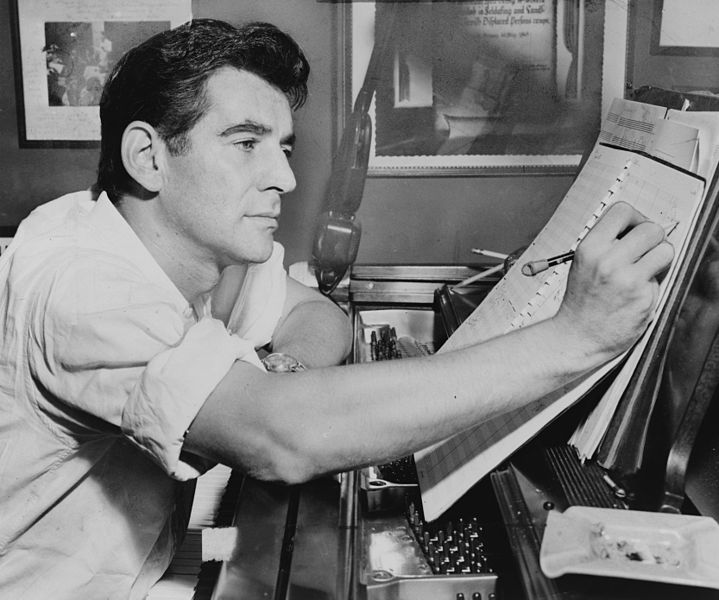
Leonard Bernstein seated at piano, making annotations to musical score. (Photo: Al Ravenna, via Library of Congress)
Bernstein was closely associated with the New York Philharmonic for 47 years. A pivotal moment in his career took place in 1943, when he, as the New York Philharmonic’s assistant conductor, stepped in for guest conductor Bruno Walter, who was ill. He served as the Philharmonic’s music director from 1958 to 1969 and laureate conductor until his death in 1990. With the orchestra, he led 1,244 concerts and made over 200 recordings.
In October 2015, Chicago’s Legacy Walk honored Bernstein with a bronze memorial plaque which was installed on one of the many rainbow pylons on Halsted Street, in Boystown — the first gay village in the United States to be officially recognized. The plaque was sponsored in part by WFMT. Learn more about the legacy of Bernstein and other LGBTQ composers on WFMT.com here.

